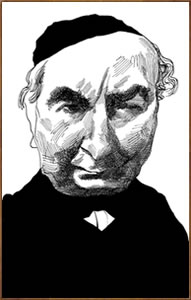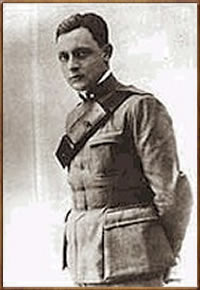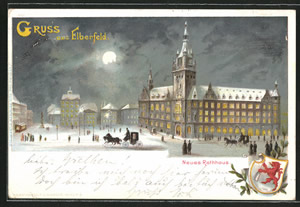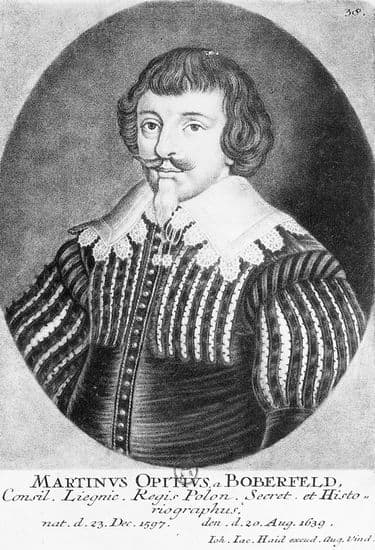De Franse dichter, schrijver en criticus Charles Augustin Sainte-Beuve werd geboren op 23 december 1804 in Boulogne-sur-Mer. Zie ook alle tags voor Charles Sainte-Beuve op dit blog.
Uit: What is a Classic? (Vertaald doorFrancis Steegmuller en Norbert Guterman)
“A delicate question, to which somewhat diverse solutions might be given according to times and seasons. An intelligent man suggests it to me, and I intend to try, if not to solve it, at least to examine and discuss it face to face with my readers, were it only to persuade them to answer it for themselves, and, if I can, to make their opinion and mine on the point clear. And why, in criticism, should we not, from time to time, venture to treat some of those subjects which are not personal, in which we no longer speak of some one but of some thing? Our neighbours, the English, have well succeeded in making of it a special division of literature under the modest title of “Essays.” It is true that in writing of such subjects, always slightly abstract and moral, it is advisable to speak of them in a season of quiet, to make sure of our own attention and of that of others, to seize one of those moments of calm moderation and leisure seldom granted our amiable France; even when she is desirous of being wise and is not making revolutions, her brilliant genius can scarcely tolerate them.
A classic, according to the usual definition, is an old author canonised by admiration, and an authority in his particular style. The word classic was first used in this sense by the Romans. With them not all the citizens of the different classes were properly called classici, but only those of the chief class, those who possessed an income of a certain fixed sum.”

Katikatuur door David Levine, 1996
De Italiaanse schrijver Giuseppe Tomasi di Lampedusa werd geboren in Palermo op 23 december 1896. Zie ook alle tags voor Giuseppe Tomasi di Lampedusa op dit blog.
Uit: The Leopard (Vertaald door Archibald Colquhoun)
‘I don’t think they understood, but they laughed and went off.That is my answer to you too, my dear Chevalley; the Sicilians never want to improve for the simple reason that they think themselves perfect; their vanity is stronger than their misery; every invasion by outsiders, whether so by origin or, if Sicilian, by independence of spirit, upsets their illusion of achieved perfection, risks disturbing their satisfied waiting for nothing; having been trampled on by a dozen different peoples, they think they have an imperial past which gives them a right to a grand funeral.

Alain Delon en Claudia Cardinale in de gelijknamige film van Luchino Visconti, 1963
‘Do you really think, Chevalley, that you are the first who has hoped to canalise Sicily into the flow of universal history? I wonder how many Moslem Imams, how many of King Roger’s knights, how many Swabian scribes, how many Angevin barons, how many jurists of the Most Catholic King have conceived the same fine folly; and how many Spanish viceroys too, how many of Charles III’s reforming functionaries! And who knows now what happened to them all! Sicily wanted to sleep in spite of their invocations; for why should she listen to them if she herself is rich, if she’s wise, if she’s civilized, if she’s honest, if she’s admired and envied by all, if, in a word, she is perfect?”

De Duitse dichteres en schrijfster Mathilde Wesendonck werd geboren als Agnes Luckemeyer op 23 december 1828 in Elberfeld. Zie ook alle tags voor Mathilde Wesendonck op dit blog.
Im Treibhaus
Hochgewölbte Blätterkronen,
Baldachine von Smaragd,
Kinder ihr aus fernen Zonen,
Saget mir, warum ihr klagt?
Schweigend neiget ihr die Zweige,
Malet Zeichen in die Luft,
Und der Leiden stummer Zeuge,
Steiget aufwärts süßer Duft.
Weit in sehnendem Verlangen
Breitet ihr die Arme aus,
Und umschlinget wahnbefangen
Öder Leere nicht’gen Graus.
Wohl, ich weiß es, arme Pflanze:
Ein Geschicke teilen wir,
Ob umstrahlt von Licht und Glanze,
Unsre Heimat ist nicht hier!
Und wie froh die Sonne scheidet
Von des Tages leerem Schein,
Hüllet der, der wahrhaft leidet,
Sich in Schweigens Dunkel ein.
Stille wird’s, ein säuselnd Weben
Füllet bang den dunkeln Raum:
Schwere Tropfen seh’ ich schweben
An der Blätter grünem Saum.

Ansichtkaart van Elberfeld uit 1898, Neues Rathaus
De Duitse dichter Martin Opitz von Boberfeld werd geboren op 23 december 1597 in Bunzlau (Silezië). Zie ook alle tags voor Martin Opitz op dit blog.
Daß die Poeterey vnsterblich sey
Was wirffstu / schnöder Neid / mir für die Lust zu schreiben
Von Venus / vnd mit jhr die Jugend zu vertreiben?
Ich achte deiner nicht / du liebest Eitelkeit:
Mein Lob vnd Name wird erklingen weit vnd breit.
Cupido führet mich in eine grüne Wüsten /
Da der Poeten Volck weit von Begier vnd Lüsten /
Vorzeiten hat gelebt wie noch die erste Welt
Nichts von den Städten wust’ / vnd wohnet vmb das Feld.
Die Nymphen werden mir den Lorberkrantz auffsetzen /
Mit meinen Versen wird sich Erato ergetzen:
So weit die grüne Lust vnd hohen Wälder gehn /
So weit wird mein Gedicht’ an allen Bäumen stehn.
Jhr örter voller Frewd’ / jhr Auffenthalt der Hirten /
Jhr Bäch’ / jhr Ahornbäum’ / jhr Quell / jhr zarten Myrten /
Jhr Thäler / jhr Gebirg’ / jhr Blumen vnd jhr Stein’ /
Jhr Wohnhauß aller Rhu / bey euch wüntsch ich zu seyn;
Sonst nirgends als bey euch: von ewrer Lust besessen
Wil ich deß irrdischen / vnd meiner selbst / vergessen.
Wie Perseus als er erst Andromeden erblickt /
Ward mitten in der Lufft durch ihre Ziehr verzückt /
So daß er kaum das Roß vermochte zu regieren:
So soll auch mich von euch kein andre Liebe führen /
Biß mich der Letzte Todt hier vnversehens kriegt /
Vnd Venus mich begräbt wo jhr Adonis liegt.

